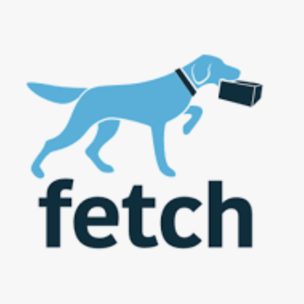MCPTop - Discover The Best MCP Servers 2025
Get your favorite MCP servers in MCPTop. MCP server list is updated daily. It's free to submit here to enhance your SEO now.
MCP Server List

A Model Context Protocol server that allows AI assistants to interact with Appwrite's API, providing tools to manage databases, users, functions, teams, and other resources within Appwrite projects.

Enables LLMs like Claude to navigate the web through Puppeteer-based tools and Steel. Based on the Web Voyager framework, it provides tools for all the standard web actions click clicking/scrolling/typing/etc and taking screenshots.

An MCP server for doing doing initial app planning and creating a good starting point in Databutton – it starts a new app and generates the initial MVP tasks

A Model Context Protocol (MCP) server lets AI assistants like Claude use the Exa AI Search API for web searches. This setup allows AI models to get real-time web information in a safe and controlled way.

A production-ready Model Context Protocol server that enables language models to leverage AI-powered web scraping capabilities, offering tools for transforming webpages to markdown, extracting structured data, and executing AI-powered web searches.

An implementation of the Model Context Protocol for the Opik platform that provides a unified interface for accessing Opik's capabilities, supporting multiple transport mechanisms for flexible integration with IDEs and other environments.

Provides SQLAlchemy (via pyodbc) connectivity to any Database Management System (DBMS) that's accessible via SQLAlchemy.

An MCP server fetches web content, converting HTML to markdown. The fetch tool extracts content in chunks via start_index for efficient processing.
Frequently Asked Questions
What is MCP (Model Context Protocol)?
MCP is an open-source protocol developed by Anthropic that enables AI systems like Claude to securely connect to various data sources. By establishing a client-server architecture, it provides a universal standard for AI assistants to access external data, tools, and prompts, thereby enhancing the functionality and utility of AI systems.
What are MCP servers and how do they work?
MCP servers are systems that provide context, tools, and prompts to AI clients. They operate through a standardized protocol that exposes data and functionality for AI assistants to securely access external resources.
These servers maintain secure connections with clients inside applications like Claude Desktop, offering access to files, documents, databases, and API integrations.
Through MCP servers, AI assistants can safely access real-time information and perform complex operations, greatly expanding the capability range and practical utility of AI systems.
What types of resources and functions can MCP servers provide?
1) Shared resources: including files, documents, and various types of data that allow AI systems to access diverse information sources.
2) Tools: such as API integrations and operational functions that enable AI to perform various complex tasks and operations.
3) Prompts: templated interaction guides. Servers manage their own resources and maintain system boundaries, ensuring data access is secure and controlled.
How is security ensured in MCP servers?
Security is built into the MCP protocol by design. Servers control their own resources, eliminating the need to share API keys with AI providers, and systems maintain clear boundaries. Each server is responsible for managing its own authentication and access control mechanisms, ensuring data is only accessed by authorized clients. Additionally, the protocol design prevents potential security vulnerabilities, protecting user data and system integrity.
What are the features of our MCP server directory?
Our MCP server directory is a community-driven platform focused on collecting and organizing high-quality third-party MCP server resources. We provide comprehensive server information, including feature descriptions, performance metrics, and user reviews, helping users find the MCP servers that best suit their needs. Our directory is regularly updated to ensure the timeliness and accuracy of information.
How can I submit my developed MCP server to the directory?
You can submit your MCP server by clicking the "Submit" button in the navigation bar. Please provide detailed information about your server, including name, feature description, technical characteristics, and connection methods. Our review team will evaluate your server and add it to the directory. We welcome developers to share innovative MCP servers, collectively promoting the development of the AI ecosystem.
How do MCP servers differ from traditional APIs?
The main differences between MCP servers and traditional APIs are: 1) MCP is designed specifically for AI systems, providing structured contextual information; 2) The MCP protocol provides unified standards, simplifying integration between AI and various data sources; 3) MCP includes security mechanisms specifically addressing AI-specific security challenges; 4) MCP servers can provide complex tool combinations, not just data access. These characteristics make MCP servers an ideal choice for enhancing AI capabilities.
What are the future development trends for MCP servers?
Future development trends for MCP servers include: 1) Emergence of more industry-specific servers; 2) Enhanced real-time data processing capabilities; 3) More complex toolchain integrations; 4) Improved security and privacy protection mechanisms; 5) Growth of community-driven open-source server ecosystems; 6) Standardization of enterprise-level remote servers; 7) Compatibility with more AI models. These trends will further expand the application scope and value of MCP servers.

